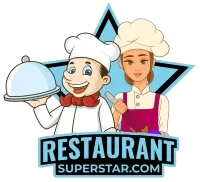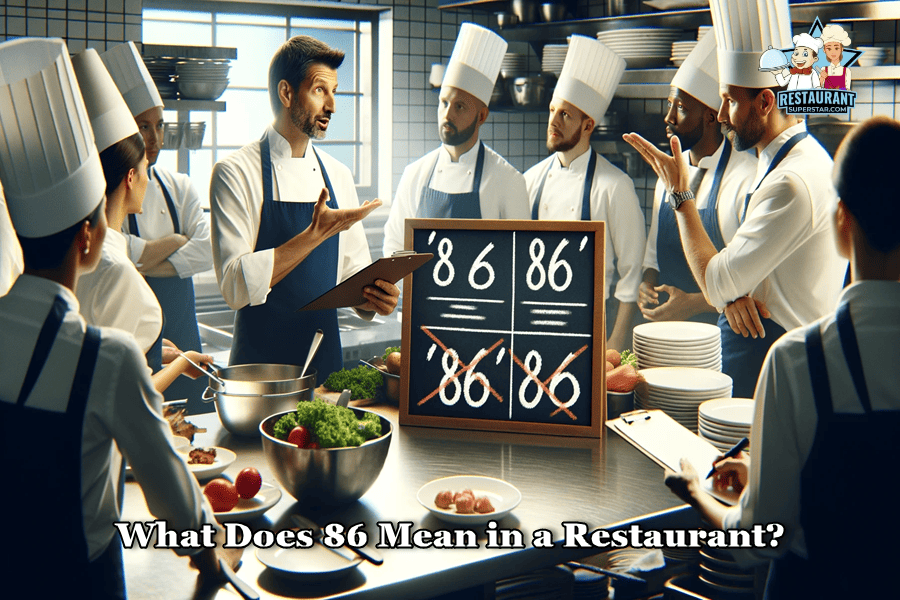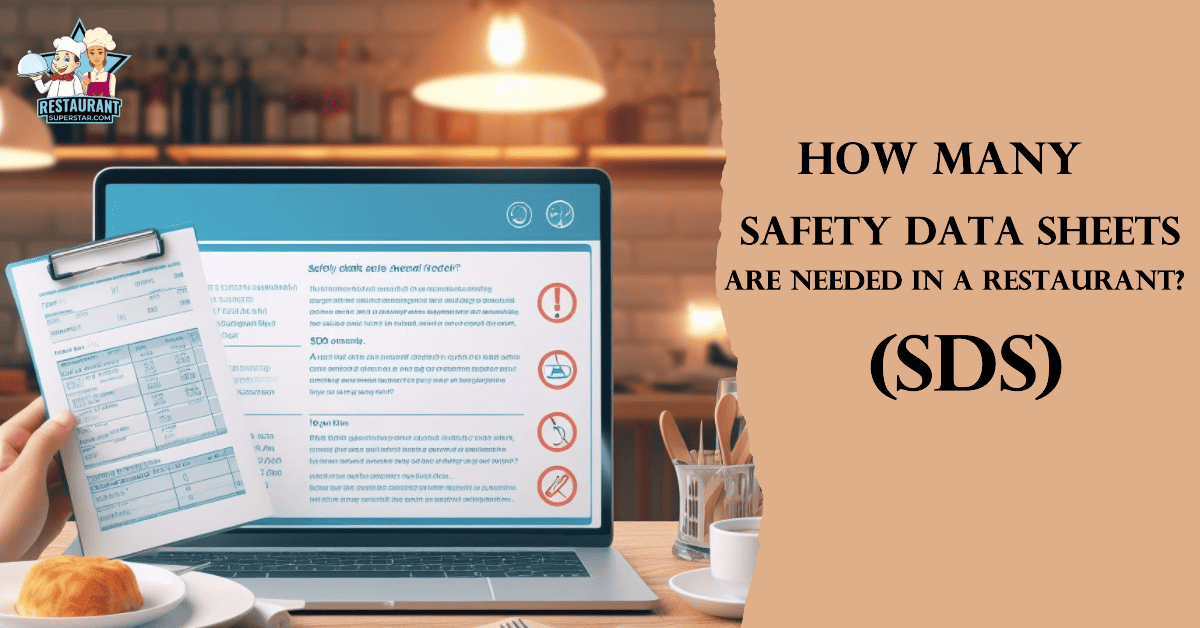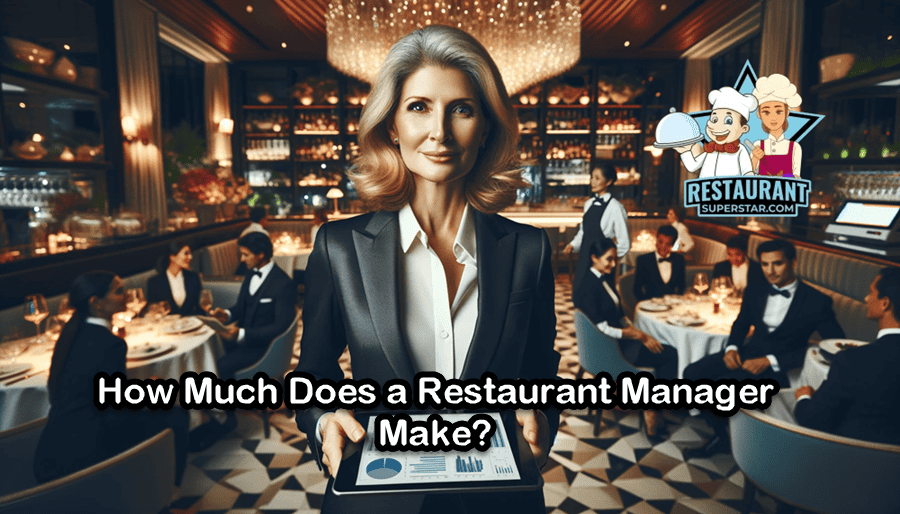How To Become a Restaurant Consultant 15+ Easy Steps
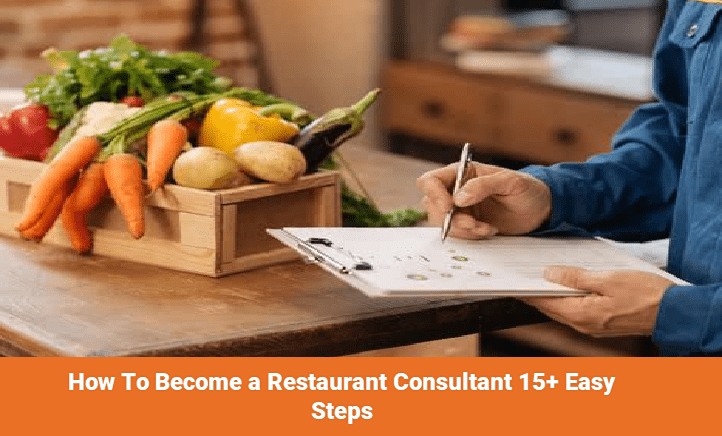
Hey there,
If you were wondering,
How To Become a Restaurant Consultant?
You are in the right place.
How To Become a Restaurant Consultant?
How To Become a Restaurant Consultant? To kickstart a career as a restaurant consultant, immerse yourself in the restaurant industry, gathering insights and expertise in food trends and management. Enhance your skills in communication and marketing, and stay updated on relevant laws and regulations. Networking is vital; connect with industry experts and showcase your achievements through a well-curated portfolio. Develop a clear business and marketing strategy, focusing on exceptional customer service, to build a trustworthy reputation in the industry. Stay abreast of industry innovations and be ready to adapt and travel as needed.
To become a successful restaurant consultant, you’ll need a strong food and beverage industry foundation and management, marketing, and financial analysis expertise. You’ll also need excellent communication skills and the ability to work well under pressure.
In this blog post, we’ll explore the steps you can take to become a restaurant consultant, including gaining experience in the industry, building a network of contacts, and honing your skills through education and training.
Whether you’re a highly experienced restaurant specialist or are just beginning in this field, this guide will give you all the skills and resources necessary to flourish as a restaurant consultant. So please pour yourself your favorite cup of coffee, and let’s get started.
What Is a Restaurant Consultant?
What Is a Restaurant Consultant? A restaurant consultant advises restaurant owners and managers on improving their operations, increasing profitability, and enhancing the customer dining experience. They bring management, marketing, and financial analysis expertise to help their clients succeed in the competitive restaurant industry.
What Does a Restaurant Consultant Do?
What Does a Restaurant Consultant Do? Restaurant consultants are the culinary world’s wizards, sprucing up menus, optimizing operations, and boosting profitability. They’re the go-to experts for fresh restaurant concepts, financial advice, staff training, and stellar marketing campaigns, ensuring eateries shine in every aspect. Whether solo or in a firm, they’re the secret ingredient to a restaurant’s success.
What is a Restaurant Consultant Salary
What is a Restaurant Consultant Salary? Wondering about a restaurant consultant’s salary? On average, you could be earning around $47.77 an hour, translating to nearly $99,360 annually. Your pay might fluctuate based on your location, expertise, and skills. In cities like NYC or LA, salaries average around $82,000 and $75,000 respectively, potentially outearning some top positions in the industry.
How to Become a Food Consultant
Start by snagging a degree in a food-related field and soaking up industry experience in various roles. Don’t forget to grab some prestigious certifications and network with the industry’s finest. Find your niche, flaunt your expertise through a vibrant portfolio, and get ready to spice up the food industry with your passion and skills.
How To Become a Restaurant Consultant made easy: a step-by-step guide
Hey foodies! Want to help restaurants succeed? Learn how to become a restaurant consultant with our easy step-by-step guide! 🍽️💼👨🍳
17 actual steps on How To Become a Restaurant Consultant
1- Gain experience in the restaurant industry.
Hands-on experience in the restaurant industry is crucial to becoming a successful restaurant consultant. Whether you’ve worked as a server, a chef, or a restaurant manager, having firsthand knowledge of the inner workings of a restaurant will give you a unique perspective and help you understand the challenges that restaurant owners and managers face daily.
To gain experience, you can start working in various restaurant roles. This will allow you to understand better the different positions and responsibilities within a restaurant and the operational challenges of running a restaurant. You can also consider taking on internships or apprenticeships to gain more in-depth experience.
Having a solid foundation in the restaurant industry will help you understand your client’s needs and give you the credibility and expertise to provide valuable insights and solutions to their challenges.
2 – Develop a Deep Understanding of Food and Beverage.
As a restaurant consultant, having a deep understanding of food and beverage is essential. You’ll need a thorough knowledge of ingredients, cooking techniques, flavor profiles and a sense of different cuisines and dining experiences.
You can start by studying culinary arts and food science to develop your understanding. This will give you a comprehensive understanding of the ingredients, techniques, and principles behind food and beverage preparation.
You can also experiment with cooking and tasting different types of food to develop your palate and expand your knowledge.
In addition, it’s important to stay up-to-date on food and beverage trends and innovations. This can include attending food and beverage conferences and events, subscribing to industry publications, and following food bloggers and social media influencers.
A deep understanding of food and beverage will help you provide valuable insights to your clients and develop creative and innovative solutions to their challenges.
3 – Study management, marketing, and finance
You’ll need a strong management, marketing, and financial foundation to be an effective restaurant consultant. These skills will enable you to help your clients improve their operations, attract customers, and increase profitability.
You can take leadership, team building, and project management courses to develop your management skills. You can also study the different aspects of restaurant operations, such as kitchen management, front-of-house management, and supply chain management.
For marketing, you can learn about branding, social media marketing, and online advertising. You can also study market research and consumer behavior to help your clients better understand their target market and how to attract and retain customers.
You can learn about budgeting, accounting, and financial analysis for finance. You can also study the different financial metrics relevant to the restaurant industry, such as food and labor costs.
A strong management, marketing, and finance foundation will enable you to provide valuable insights and solutions to your clients and help them achieve their goals of running a successful restaurant.
4 – Learn about laws and regulations.
As a restaurant consultant, it’s important to thoroughly understand the laws and regulations that govern the restaurant industry. This will help you ensure that your clients comply with all applicable laws and avoid any legal issues that could negatively impact their business.
You can start by researching the laws and regulations in your region that apply to the restaurant industry, such as health and safety regulations, labor laws, and liquor licensing laws. You can also consult with legal professionals to better understand the issues most relevant to your clients.
In addition, it’s essential to stay up-to-date on any changes to laws and regulations that may impact the restaurant industry. This can include attending seminars and workshops, subscribing to industry publications, and participating in industry associations and organizations.
A strong understanding of laws and regulations will help you provide valuable advice to your clients and help them avoid any legal issues that could harm their business.
5 – Develop Strong Communication and Interpersonal Skills
You’ll regularly work with clients and their staff as a restaurant consultant. This requires strong communication and interpersonal skills and building client trust and rapport.
You can take public speaking, conflict resolution, and negotiation courses to develop your communication and interpersonal skills. You can also practice active listening and develop your empathy and emotional intelligence.
In addition, it’s essential to adapt your communication style to different audiences and situations. For example, you may need to communicate technical information to kitchen staff differently than you would front-of-house staff or the restaurant owner.
Strong communication and interpersonal skills can build reliable connections with your clientele.
Not only that, but such capabilities will allow you to communicate practical solutions understandably for all parties involved – resulting in a positive reputation within the industry and thus allowing new opportunities to arise further down the line.
6 – Network with pros
Networking with other professionals in the restaurant industry is essential if you want to become a successful restaurant consultant. You can attend industry events and conferences, join professional organizations, and participate in online forums and social media groups to meet other professionals and build relationships.
By networking, you can gain valuable insights into the industry, learn about emerging trends and technologies, and discover new opportunities for growth and development. You can also build a strong reputation as a knowledgeable and trustworthy consultant, leading to more clients and projects in the future.
Networking is an indispensable tool for novice and veteran restaurant consultants looking to advance their careers. Not only does it keep you connected, but it also lets you stay engaged with other renowned professionals in the food service industry.
7 – Attend Events & Conferences.
Attending industry events and conferences is a great way to learn about the latest trends, technologies, and best practices in the restaurant industry. As a restaurant consultant, staying up to date with the latest developments is important, and attending events and conferences can provide valuable insights and ideas.
You can network with other professionals, attend workshops and seminars, and learn from industry leaders and experts. You can showcase your expertise and build your reputation as a knowledgeable and skilled consultant by attending events and conferences.
It’s important to research and choose events relevant to your interests and expertise and to take full advantage of the opportunities to learn, connect, and grow. Whether you’re attending your first event or your hundredth, it’s always a great way to stay engaged and inspired in the restaurant industry.
8 – Build a Successful Portfolio
Building a successful portfolio is an essential step in becoming a restaurant consultant. Your portfolio showcases your skills, experience, and accomplishments and can help you attract new clients and build your reputation in the industry.
To build a successful portfolio, you can start by identifying your strengths and expertise and selecting projects highlighting your skills and achievements. To demonstrate your capabilities, it’s important to showcase various tasks, such as menu development, restaurant design, and operations management.
You can also include testimonials, recommendations from past clients, and any awards or recognition you’ve received in the industry.
Your portfolio should be well-organized, visually appealing, and easy to navigate, with clear descriptions of each project and your role in it. By building a successful portfolio, you can demonstrate your value as a restaurant consultant and attract new clients seeking your specific skills and expertise.
9 – Obtain Relevant Certifications
Obtaining relevant certifications is an important step in becoming a qualified restaurant consultant. Certifications can help you demonstrate your knowledge and expertise in specific areas of the restaurant industry, such as food safety, nutrition, or hospitality management.
You can take courses or exams through industry associations, such as the National Restaurant Association or the American Culinary Federation to obtain certifications.
You can also pursue certifications from universities or professional organizations that offer specialized training in menu development, kitchen management, or restaurant marketing.
Having relevant certifications demonstrates your expertise to clients. It provides you with the latest information and best practices in the industry, which can help you make informed recommendations and stay up-to-date with emerging trends.
By obtaining relevant certifications, you can position yourself as a skilled and knowledgeable consultant and set yourself apart from other professionals in the industry.
10 – Unique consulting approach
Developing a unique consulting approach is essential for becoming a successful restaurant consultant. Your strategy should be tailored to each client’s needs and based on a deep understanding of their business goals, challenges, and opportunities.
To develop a unique consulting approach, you can start by thoroughly assessing each client’s operations, such as their menu, staffing, finances, and customer experience.
You can develop customized solutions that address their needs and goals based on best practices and industry trends. Your approach should focus on creating lasting relationships with your clients by being thoughtful, communicative, and transparent in the consulting process.
By developing a unique consulting approach, you can differentiate yourself from other consultants and build a reputation as a trusted and influential advisor in the restaurant industry.
11 – Define the target market
Defining your target market is crucial in becoming a successful restaurant consultant. Your target market includes the types of restaurants, cafes, or other food establishments you want to work with, which can benefit from your expertise and services.
To define your target market, you can start by identifying the types of clients that align with your skills, experience, and interests.
For example, you may specialize in working with small independent restaurants or larger chains that want to expand or streamline their operations. You can also consider the geographic locations and market segments most relevant to your consulting services, such as urban areas, tourist destinations, or specific cuisines or themes.
By defining your target market, you can focus your marketing and networking efforts on the most promising opportunities and develop specialized expertise to set you apart from other consultants.
12 – Create a Business Plan.
Creating a business plan is crucial to becoming a successful restaurant consultant. Your business plan should outline your consulting business’s goals, strategies, and financial projections. It should also include a thorough analysis of the market, competition, and trends in the restaurant industry.
To create a business plan, you can start by researching the demand for restaurant consulting services in your target market and assessing the strengths and weaknesses of your competitors.
You can also identify your unique value proposition and brand identity and develop a marketing and sales plan highlighting your expertise and services.
Your financial projections should include your revenue streams, expenses, cash flow, and any startup costs or investments needed to launch your consulting business.
By creating a business plan, you can set realistic and achievable goals for your consulting business and ensure you have the resources and strategies to succeed.
13 – Develop a Marketing Strategy
Developing a marketing strategy is crucial to becoming a successful restaurant consultant. Your marketing strategy should focus on promoting your brand, expertise, and services to your target market and establishing yourself as a trusted and valuable advisor in the restaurant industry.
To develop a marketing strategy, you can create a brand identity and message that aligns with your unique value proposition and target market. You can then use various channels to promote your consulting services, such as social media, email marketing, content marketing, and networking events.
You can also consider partnering with other businesses in the restaurant industry, such as suppliers, vendors, or complementary service providers, to expand your reach and offer additional value to your clients.
Your marketing strategy should be aligned with your business goals and budget and flexible enough to adapt to market and industry trends.
By developing a solid and effective marketing strategy, you can increase your visibility and credibility as a restaurant consultant and attract more clients and opportunities to grow your business.
14 – Build a Professional Team.
As a restaurant consultant, building a professional team can help you expand your expertise and capacity and provide better services to your clients.
Your team can consist of other consultants, contractors, or employees with complementary skills and experience in operations, marketing, finance, or technology.
To build a professional team, you can start by identifying the skills and qualities you need in your team members and defining their roles and responsibilities. You can use various channels to recruit and hire your team members, such as job boards, referrals, or social media.
To ensure your team delivers the superior services your clients expect, it is essential to set up crystal-clear communication and collaboration protocols and offer training and development programs.
By building a professional team, you can leverage your team members’ collective knowledge and skills and offer your clients more comprehensive and valuable consulting services. This can also help you expand your business and reputation in the restaurant industry and attract more clients and opportunities for growth.
15 – Travel frequently
As a restaurant consultant, traveling frequently can be a necessary part of your job, as you may need to visit various restaurants, clients, or industry events in different locations.
Traveling can help you broaden your perspective, discover new trends and best practices, and establish valuable connections and relationships with clients and partners.
To travel frequently as a restaurant consultant, you can start by planning and scheduling your trips based on your client’s needs and preferences.
You can also use various tools and apps to book flights, hotels, and transportation and manage your travel expenses and itinerary.
It’s important to be flexible and adaptable while traveling, as unexpected changes or delays can occur. It would be best to prioritize your health and well-being while traveling by staying hydrated, eating healthy, and getting enough rest and exercise.
By frequently traveling as a restaurant consultant, you can enhance your expertise and value to clients and establish a strong reputation and network in the restaurant industry.
16 – Continuous education
As a restaurant consultant, continuous education is crucial to staying relevant, informed, and competent in your field. The restaurant industry is dynamic and constantly evolving, with new trends, technologies, regulations, and challenges emerging regularly.
You need to invest in your education and development to keep up with these changes and provide the best services to your clients. This can involve attending seminars, workshops, webinars, or conferences on restaurant management, marketing, finance, technology, or food safety.
You can also read industry experts’ books, articles, and blogs, listen to podcasts, and watch videos on related topics.
Furthermore, you can join professional associations or groups that provide education and networking opportunities and offer certifications or credentials that enhance your credibility and marketability as a consultant.
By continuously educating yourself as a restaurant consultant, you can expand your knowledge and skills, differentiate yourself from competitors, and provide more valuable and effective client services.
17 – Exceptional customer service
Exceptional customer service is a key factor in becoming a successful restaurant consultant. As a consultant, you are working with clients who may be struggling with various aspects of their restaurant business, and it’s essential to provide them with high-quality service that meets their needs and expectations.
To provide exceptional customer service, you can start by listening carefully to your clients, understanding their goals, and developing customized solutions that address their specific challenges.
You should also communicate effectively and regularly with your clients, providing updates, feedback, and recommendations that help them make informed decisions.
It’s also important to be reliable, professional, and responsive, ensuring your clients feel valued and respected.
Going the extra mile to provide exceptional service can help build long-lasting relationships with clients, earn their trust and loyalty, and generate referrals and positive reviews.
You can differentiate yourself from competitors by providing exceptional customer service as a restaurant consultant and establishing a solid reputation in the industry.
18 – Build a Trusted Reputation
Building a trusted reputation is critical for becoming a successful restaurant consultant. As a consultant, your reputation can make or break your business.
Building trust starts with providing high-quality services that exceed your client’s expectations.
It’s also essential to be transparent and honest, keeping your clients informed and up-to-date on your progress.
Your reputation can also be enhanced by developing a professional online presence, such as a website and social media profiles, where you can showcase your expertise, experience, and track record.
Positive reviews and referrals from satisfied clients can also help build your reputation as a trusted consultant.
Finally, staying up-to-date with the latest trends, best practices, and industry developments is essential, ensuring your clients receive the most relevant and effective consulting services.
By building a trusted reputation as a restaurant consultant, you can attract new clients, retain existing ones, and establish yourself as a thought leader in the industry.
How to Become a Restaurant Consultant in California?
How to become a restaurant consultant in California? To kickstart your journey, gain invaluable experience in diverse restaurant roles. Enhance your expertise through formal education in hospitality management or business administration. Boost credibility with certifications from renowned industry organizations. Network and build connections for golden opportunities. Carve out your niche in consulting, flaunt unique skills, and leverage success stories as marketing tools. With passion and perseverance, guide restaurateurs to success in no time! Gear up to spice up the California restaurant scene.
How to become a Restaurant Consultant in Texas
Here’s your quick guide to success:
- Dive In: Gain hands-on experience in various restaurant roles.
- Learn: Enhance your expertise with some formal education.
- Certify: Grab a certification to boost your credibility.
- Network: Forge valuable connections in the industry.
- Specialize: Carve out your niche and showcase your achievements.
How to Become a Restaurant Consultant with no Experience
How to Become a Restaurant Consultant with no Experience? Start by acquiring knowledge through hospitality courses. Next, immerse yourself in the restaurant world, learning the ropes firsthand. Build a network in the industry, showcase your journey via a portfolio or blog, and enhance your credibility with certifications. Your pathway to guiding restaurateurs to success is just a few steps away. Let’s embark on this culinary adventure together.
Frequently ASKED Questions
What Are the Duties of a Restaurant Consultant?
Restaurant consultants wear many hats to ensure your business thrives. They dive deep into improving various aspects of your venture, including operations, financial management, and staffing. It’s their job to streamline processes and enhance the overall functionality of your restaurant, right from the kitchen to the back-office operations.
What Are the Benefits of Hiring a Restaurant Consultant?
Inviting a restaurant consultant on board can be a game-changer for your business. They assist in navigating the complexities of permits and licenses and impart knowledge on risk management. Moreover, they offer tailored consulting services to cater to specific needs, helping restaurants and other food enterprises to flourish and grow.
What Is the Role of a Consultant in the Hospitality Industry?
In the dynamic hospitality industry, consultants play a pivotal role in elevating businesses to new heights of success. Their main objective is to enhance service quality and streamline operations, steering businesses towards profitability. This complex role often demands a wealth of experience or advanced studies from a reputable institution to effectively guide businesses to prosperity.
What Is the Role of a Hospitality Consultant?
Hospitality consultants are the strategists behind a successful business blueprint, engaging in tasks ranging from crafting yearly revenue plans to daily revenue management chores. Their responsibilities encompass analyzing forecasts, determining optimal pricing strategies, monitoring market trends, and generating insightful revenue performance reports. They are the linchpin in crafting strategies that propel business growth and revenue.
Conclusion: How to Become a Restaurant Consultant
Becoming a restaurant consultant is an exciting and rewarding career requiring unique skills and qualities. To succeed in this field, you must be passionate about the restaurant industry, deeply understand its workings, and possess exceptional business acumen.
Following the steps in this guide, you can set yourself up for success as a highly esteemed consultant. Whether you’re just beginning or looking to take your consulting business to a higher level, it’s critical that you continually learn and evolve with current industry trends. If done correctly, these simple steps will help catapult your consultancy venture into prosperity and authority.
Network with industry professionals, attend events, build a strong portfolio, and obtain relevant certifications to showcase your expertise. Creating a unique consulting approach, defining your target market, and developing a marketing strategy will help you stand out in a crowded market.
Other critical factors are building a professional team, delivering exceptional customer service, and traveling frequently. Finally, building a trusted reputation is key to establishing yourself as a respected consultant, attracting new clients, and growing your business.
You can become a top-performing restaurant consultant with these tips and a relentless commitment to excellence.
Jeff Smith is a Restaurant Consultant with over 20 years of hospitality experience ranging from server to owner and general manager. He focuses on Restaurant POS technology as well as restaurant marketing. Check out our world-famous restaurant resources page for a comprehensive offering of hand-picked resources and tools to help your business. You can also check out some of our other restaurant business articles.
